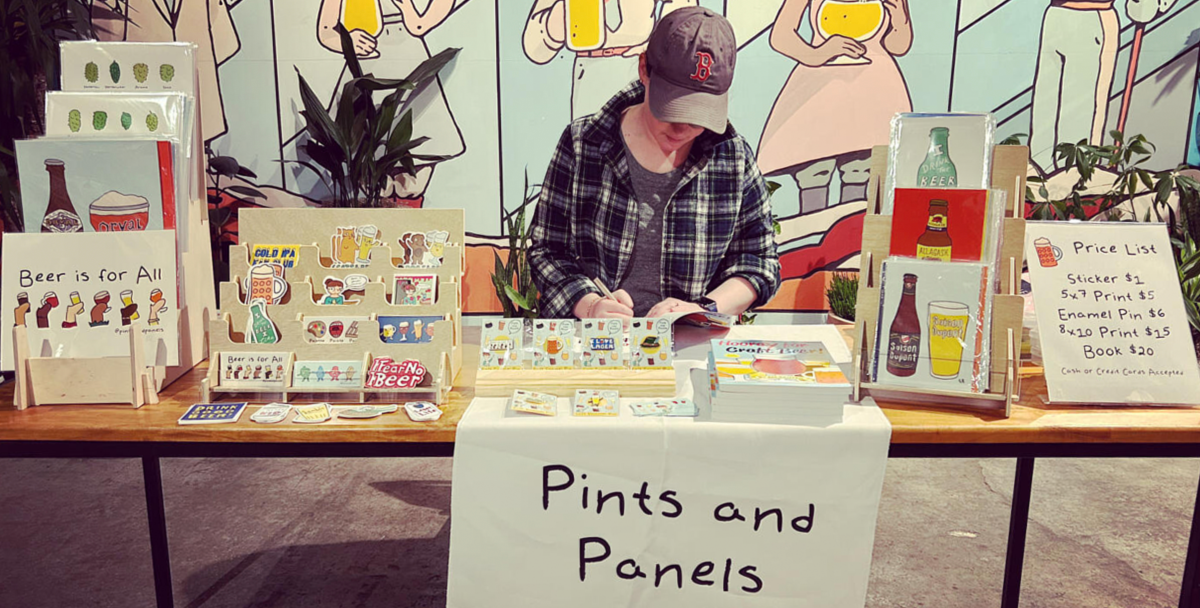Dan Kurzrock started brewing beer in 2009 as a hobby – something fun to do as he studied economics at the University of California, Los Angeles. He quickly fell in love with homebrewing, but he hated the amount of waste it created. For every six-pack of beer Kurzrock brewed, he was left with about 1 pound of soaked, strained-out grain, he says.
Kurzrock was surprised to learn that this byproduct, known as spent grain, is rich with fiber and protein. “When I first tasted it, I was like, wow, this is food,” he says. While its texture and taste were similar to oatmeal, the spent grain smelled a lot like bread.
Today there are recipes all over the internet that use spent grain, but back then, baking with the leftover grain was more the territory of niche web forums.
Kurzrock decided to experiment, using his spent grain to bake bread that he then sold to his college friends. At $5 each, the loaves were a hit around campus, but the early mornings of life as a baker were a slog.
Kurzrock and a friend, Jordan Schwartz, began to brainstorm other ways they could upcycle this grain. Schwartz, who loves cooking (he says it’s a passion he learned from his grandpa) had lots of ideas. After trial and error with baking mixes, muffins and pancakes, the friends landed on granola bars.
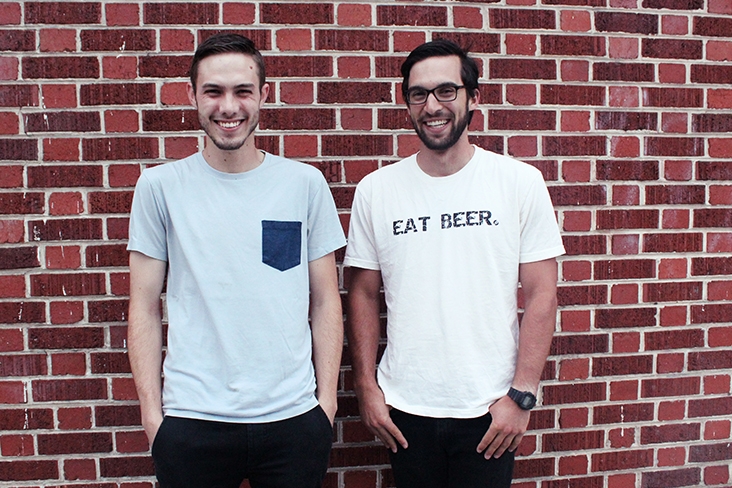
“We were in my college apartment kitchen testing batch after batch,” Schwartz says, “and drying grain in my home oven overnight, waking up every hour or so to stir it.” They chose a name, ReGrained, and eventually developed three flavors of soft, chewy bars: honey cinnamon, chocolate coffee and blueberry sunflower.
At first, the men spent their weekends driving Kurzrock’s 2013 Impreza to farmers markets and festivals around the Bay Area, where they would set up booths to sell bars.
From there, they worked with independent grocers, such as Rainbow Grocery in San Francisco, to put ReGrained on shelves. That led to deals with national chains, including Whole Foods and Cost Plus World Market. By 2019, distribution had grown to 1,500 stores.
To meet demand, Kurzrock and Schwartz needed more grain. Most craft breweries around San Francisco, the friends figured, were trashing dozens of pounds of spent grain a day. Maybe they’d be willing to hand it off to be made into granola bars instead. The duo drove from brewery to brewery in the Impreza, collecting as much grain in tubs as they could fit in the back of the vehicle.
“Some of these breweries were in basements, converted warehouses, tucked behind restaurants,” Kurzrock says. “We would take as much as we could, load the tubs of grain onto a handcart and wheel them out.” Since then, they’ve enlisted a team to do the heavy lifting.
They’ve also added another spent-grain snack to the ReGrained line: crunchy puffs in five flavors.
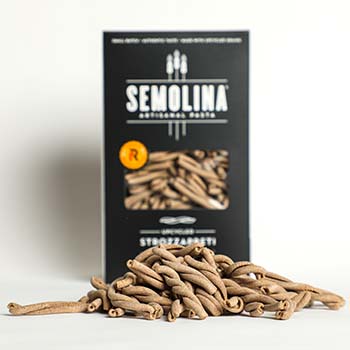

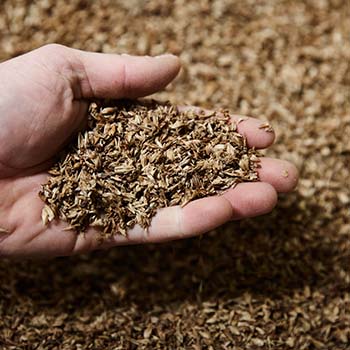
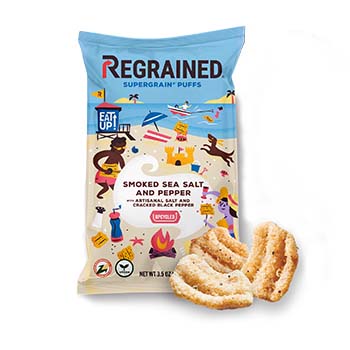
In 2020 alone, ReGrained rescued about a half million pounds of spent grain from landfill, Kurzrock says. Though this may sound like a lot, it’s just a fraction of what’s out there. Kurzrock estimates there are about 20 billion pounds of spent grain available in the U.S. alone. He aims to show other business leaders that upcycling can turn this waste into an opportunity.
As a founding officer of the Upcycled™ Food Association, a nonprofit based in Greenwood Village, Colorado, Kurzrock helped launch the Upcycled Certification Standard.
See what’s cooking at ReGrained: @regrained
This logo, now found on the packaging of food, beverages, pet food, cosmetics and cleaning products, signals that the product is made with food byproducts or surplus food – ingredients that likely would have otherwise ended up in the trash. (Businesses can apply for certification here.)
Kurzrock and Schwartz have also partnered with other food companies and chefs who use ReGrained’s spent grain to make crackers, chips, cookies, doughs and pasta.
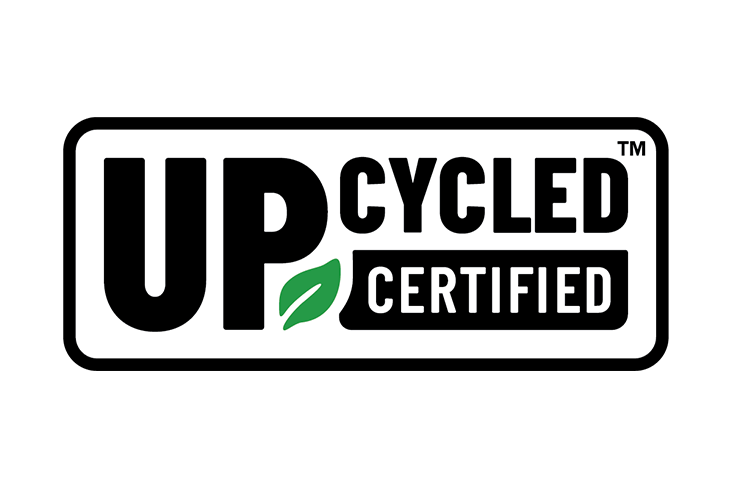
The most promising aspect of upcycling foods is just how powerful it is as a solution to food waste, says Turner Wyatt, CEO of the Upcycled Food Association. “Upcycling redefines our priorities as a food system,” Wyatt says, “and requires that we constantly think about how to get the most value out of every bit of energy we put into food.”
Know someone who’d make a great fit for an Owner Spotlight? Submit with the story title “Owner Spotlight.”
